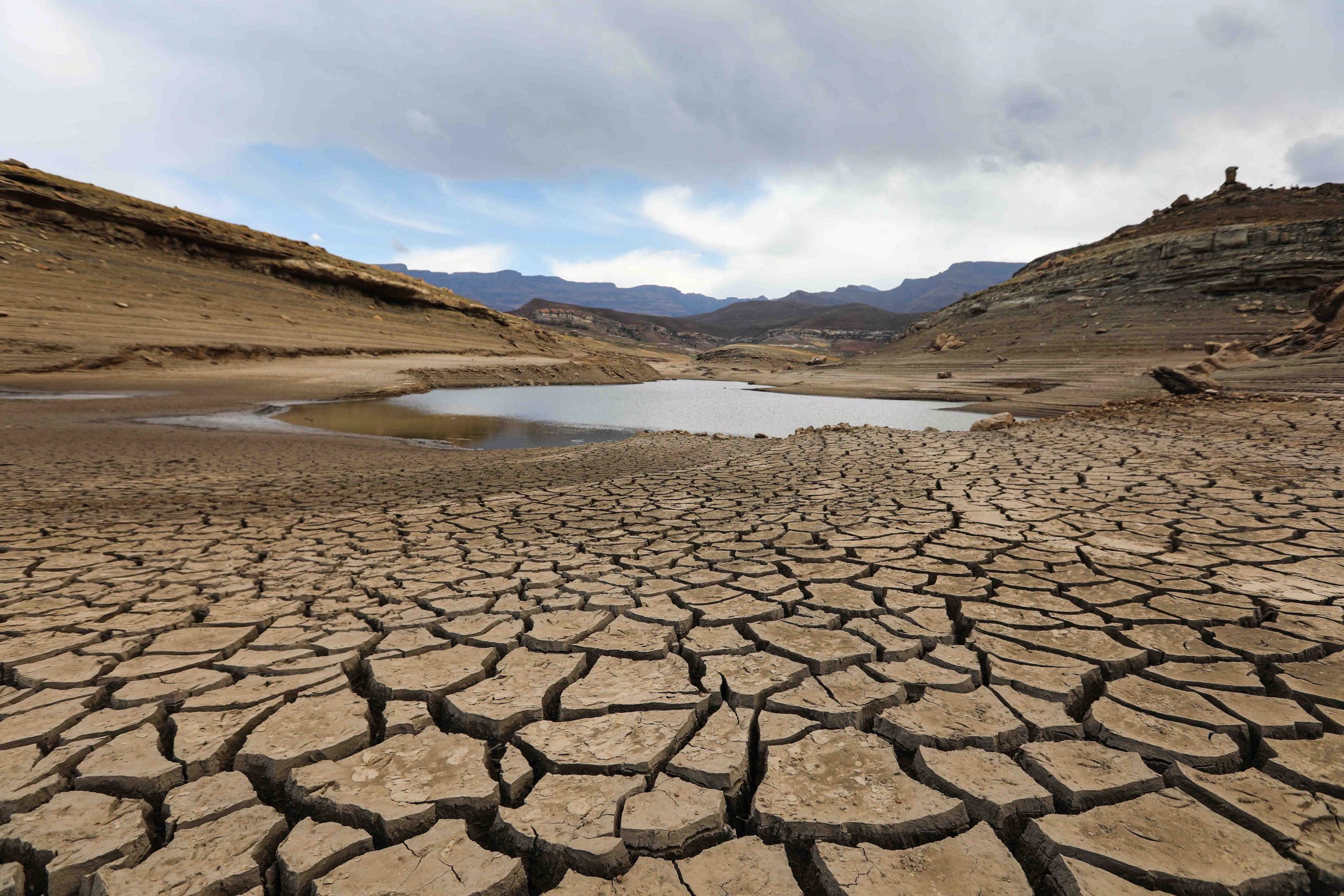South Africa is at the frontline of a water crisis
Drought and water wars will become an international reality sooner than society seems to think – and South Africa will be among the first hit.
Author:
11 November 2019

Water scarcity and drought are some of the most severe challenges facing humanity today. As a result of global warming, ecosystem destruction and wasteful industrial and agricultural practices, the United Nations estimates that 5.5 billion people will be living in water-stretched areas by 2050.
A scan of recent headlines offers a grim reminder that South Africa is at the frontline of a global water crisis. While Cape Town narrowly avoided Day Zero last year, a massive drought has decimated agricultural production throughout the country. Meanwhile, political mismanagement and corruption have resulted in water shortages and complete shutdowns in some municipalities.
Related article:
More recently, concerns have been raised that Gauteng, the economic centre of the country, may experience its own Day Zero. Built far from any natural water source, Johannesburg’s continued existence is predicated on water drawn from a complex series of dams that stretches back to Lesotho. But the lack of rain means that water levels in crucial dams are falling.
State capture and dysfunctional bureaucracy have negatively impacted on the long-term water planning needed in a semi-arid country like South Africa. Crucial projects to provide Gauteng with water were delayed because of alleged maladministration by the former minister of water and sanitation, Nomvula Mokonyane.
Day Zero
In Cape Town, meanwhile, byzantine DA infighting resulted in the bungled handling of Day Zero. As Crispian Olver writes in A House Divided about the city’s municipal politics: “The abiding impression was that the water crisis had become a political device for rival sides within the DA to pursue other agendas, while the citizens of Cape Town bore the cost.”
Given these political realities, it’s understandable that ordinary citizens are worried about waking to a scorched and parched tomorrow, where nothing comes out of the taps. In fact, this is already the reality for many impoverished people in municipalities where regular services have collapsed.
In response, Minister of Human Settlements, Water and Sanitation Lindiwe Sisulu has said that the water crisis is of the highest priority to the government. In a press conference about the water situation in Gauteng, she said “a master plan” is being prepared to conserve water. But she acknowledged that climate change is making rainfall unpredictable and that demand for water is increasing as the sweltering heat becomes more and more unbearable.
In the short term, there are many technical and engineering solutions to provide sufficient water supply for all. Water needs to be conserved and restricted, and wasteful personal consumption monitored. But, equally, greater vigilance is needed to ensure the accountability of water officials, so that the institutional breakdown and fiscal looting of the Jacob Zuma years is not perpetuated in this crucial sector.
But the broader challenge is that as environmental breakdown intensifies, South Africa’s climate will become drier, arid and more subject to drought. Considering how the current drought has already increased hunger and poverty, among many of the other social ills caused, its future intensification is a sobering prospect.
Mad Max future
Popular culture gives visions of a Mad Max future in which people compete to the death for water. But the less fantastical reality is that the ravages of the water crisis are mapped on to existing class and racial inequalities. In a dry country where millions still lack access to clean drinking water, there is a distinctive sound that Sipho Kings and Sarah Wild describe in their book, South Africa’s Survival Guide to Climate Change, as “lawn sprinkling in wealthy suburbs drown out the gurgling of emptying taps in informal settlements”.
In a highly unequal society, the water crisis will translate into hydrological enclaving as those who can afford it dig boreholes and establish private access. Symbolically, the same week that Sisulu addressed the Gauteng water crisis, the luxury Steyn City housing estate north of Johannesburg announced plans to build an artificial beach. The estate is fitted with a water reservoir to ensure its wealthy inhabitants are not affected by service disruption.
In addition, postapartheid water management has been dominated by a neoliberal ethos of treating water as a commodity, rather than a public resource. A cost recovery mentality means that municipalities aim to extract as much money as possible from users. This “user pays” mentality has resulted in a perverse situation where large industries and mines, who use bulk water directly, pay a lower price than individual households, which are charged for treated municipal water. Powerless individuals are told to monitor their consumption while large industry and agriculture are allowed to squander and pollute a vulnerable water supply.
It will, however, be impossible for most to avoid the impacts of water scarcity. Cape Town’s averted Day Zero shows how climate shocks can shatter the mundane routine of capitalism. If it had happened, the global media would have been saturated with images of well-heeled suburbanites queuing under armed guard for their daily water rations.
Given the severity of the climate crisis, a scenario that could have been ripped from the pages of a book by British apocalyptic writer JG Ballard is becoming a plausible reality for South Africa. And from the global perspective, Cape Town is a foretaste of what many cities may soon experience.
Politics of thirst
Throughout the world, water shortages are exacerbating political violence and instability, and are already a significant contributor to ongoing military conflicts in Africa and the Middle East. Drought was a key factor in sparking the civil war in Syria and is one of the primary causes of forced migration from Central America.
Interstate competition over water resources may also spark future wars. India is running out of water under the neofascist misrule of the Narendra Modi regime. The scramble for new water sources may well provoke tensions between them and their nuclear-armed regional rivals Pakistan and China.
Related article:
Reflecting on the historical politics of water scarcity shows the stakes of drought and famine. As Marxist scholar Mike Davis recounts in his book, Late Victorian Holocausts, freak drought in the 1870s led to a famine in which 50 million people died, in a situation intensified by imperialist rule and laissez faire economics. As poor Indians starved to death, British officials continued to export grain from the country. Disturbingly, recent research shows that the climatic conditions for a reprise of this global famine are highly likely in a heating world.
Capitalist modernity has rested on a foundation of cheap water. Cities such as Las Vegas, Dubai or even Johannesburg are only able to exist because of this. But like water on concrete in a Gauteng heatwave, these days of plenty are evaporating. This realisation should not be used as a pretext to impose austerity on ordinary people while industry and the rich continue to squander water.
The struggle for water has been an element within many social and labour movements, in South Africa and globally. Fights to win better water rights have shown an alternative philosophical vision of water as a common good. Not a commodity to be priced and gambled on, but as a force to be respected, carefully managed and enjoyed by all.
Sisulu had said that people shouldn’t yet panic about the water crisis. But the growing effects of the climate crisis, as well as the dysfunction within water and sanitation sectors, suggests that profound social anxiety is warranted.


